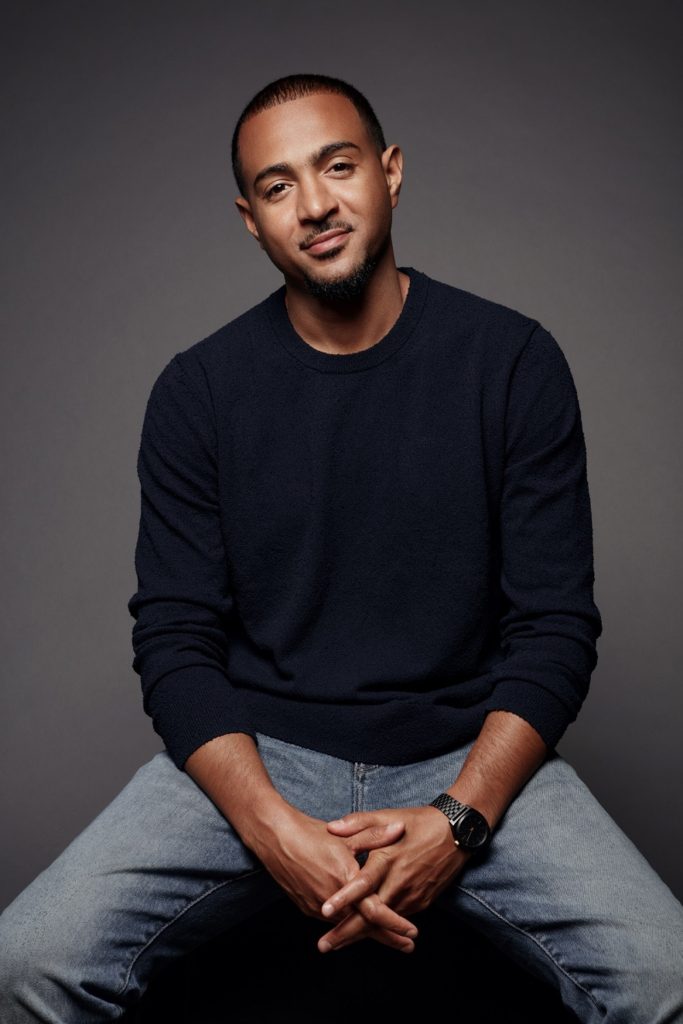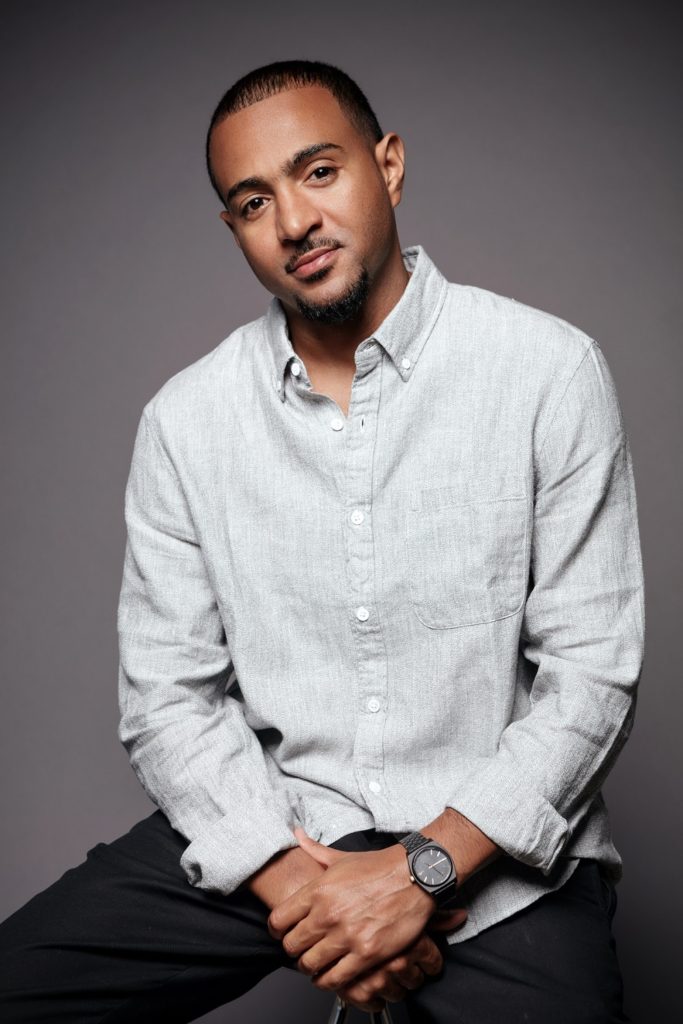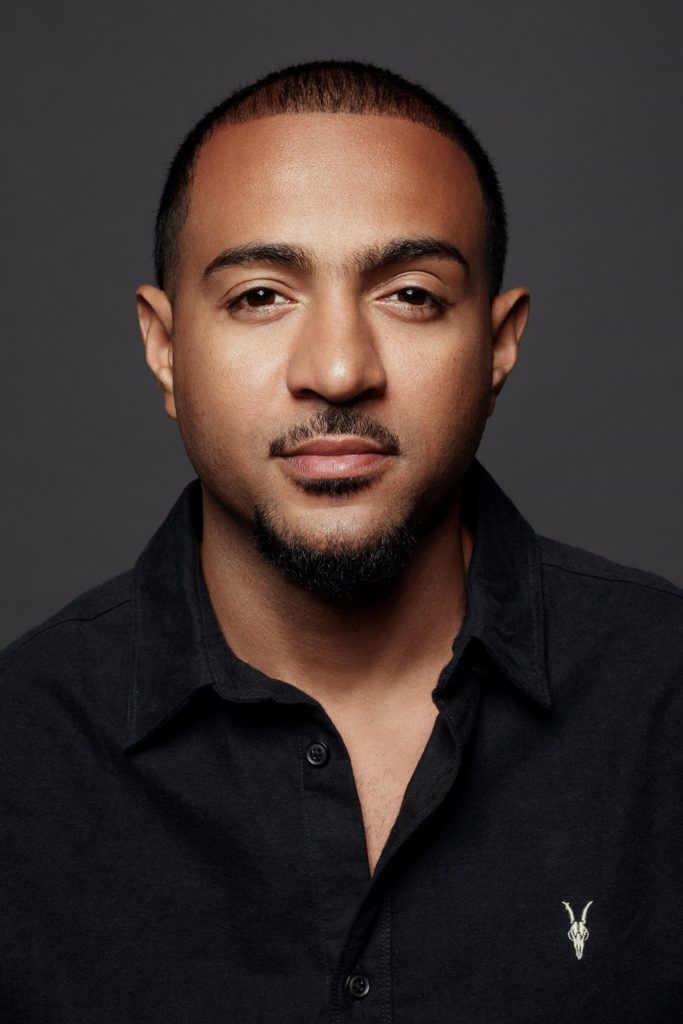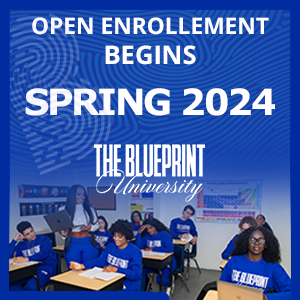Mayvenn May Have The Hair Game On Lock
Interview by KG Graham | @COSIGNKG
Words by Chris Panayiotou | @ CPLocalCeleb
Diishan Imira is CEO and co-founder of Mayvenn, a hair extension brand based in Oakland with a revolutionary business model. When we spoke, Imira was in New York City, taking meetings and preparing for a speaking engagement. “I’ve always been an entrepreneur, even before I even knew what that meant, or I even knew what business was,” he says. “I always had a drive to create whatever kind of life I wanted to live … And to me that’s really what entrepreneurship is; the willingness and the determination to set your life up however you want to set it up, on your own terms. I always had that sort of mentality … I really care about equity, and not in the financial sense of the term, but I believe in fairness. I like the idea of me being able to help my community and help people who are getting the short end of the stick; help those people get to a level playing field.” This philosophy was one of the main drivers of Imira starting Mayvenn. He wanted his community to be able to compete in the beauty market, especially considering the amount of money the community spends in this industry. He wanted to also help people become entrepreneurs in the industry. “I’m really independent and I love independence for everybody else.”
 Imira has an amazing ability to get up and go. “I get a thrill from going places that I’ve never been before or that very few people have gone.” Growing up in Oakland and having never left, his curious nature lead him to want to see more. A friend of his had gone to Hampton University on a campus tour, and came back and encouraged Imira to go. He had never planned on going to college, it wasn’t a big deal to him, but his friend convinced him to make the move, “There’s so many girls out there,” his friend told him, and from there, having no other plans, Imira said, “Fuck it, let’s go.” He applied to two schools, and got accepted into Hampton, “It was really more just like a, ‘I wanna go see,’” he says. His adventurousness lead him beyond just Virginia, as he went on to study abroad his sophomore year. He went to Tokyo, and then the next year, to Spain, and after college, he went to China. Half of his motivation was his love of traveling and wanting to see the world, and the other half was to find opportunity.
Imira has an amazing ability to get up and go. “I get a thrill from going places that I’ve never been before or that very few people have gone.” Growing up in Oakland and having never left, his curious nature lead him to want to see more. A friend of his had gone to Hampton University on a campus tour, and came back and encouraged Imira to go. He had never planned on going to college, it wasn’t a big deal to him, but his friend convinced him to make the move, “There’s so many girls out there,” his friend told him, and from there, having no other plans, Imira said, “Fuck it, let’s go.” He applied to two schools, and got accepted into Hampton, “It was really more just like a, ‘I wanna go see,’” he says. His adventurousness lead him beyond just Virginia, as he went on to study abroad his sophomore year. He went to Tokyo, and then the next year, to Spain, and after college, he went to China. Half of his motivation was his love of traveling and wanting to see the world, and the other half was to find opportunity.
Navigating through China was a challenge, but he says, “You just go, you just do it … How do you learn to swim? You have to just jump in the water.” He arrived in China in 2003, at the tail end of the SARS epidemic. Nearly all of the foreigners had fled the country by the time he got there, and he would go weeks without seeing a fellow foreigner. “It’s just funny what you will do when put in a situation where you must survive, and you must learn how to do what you have to do. It’s an incredible growing experience for anybody to do that, to go put themselves in a situation where you absolutely must figure out how to live. And then you start to discover things about yourself that you’re able do that you didn’t know or you didn’t think you’d be able to do,” Imira says. “I learned a lot about communication when I got to China and I realized how much of what you are really trying to say, you can say with your hand gestures.” He says this experience lead him to see language as a crutch, and realized that he didn’t have to talk to relay 80% of what he was trying to communicate. He was able to piece together hand gestures, body language and the quickly learned most critical words of the language, and he got done most of what he needed done. “You have to be willing to be a little uncomfortable.”
 The hustle began long before hair for Imira, having sold sneakers at one point. While he was in China in 2003, the bootleg shoe industry blew up, and he saw it was the easiest way for him to make money. He began shipping shoes back home and in the process learned the ins and outs of the import/export game. After a year and a half in China, he moved to Miami and traded in the bootleg shoe hustle to start selling furniture. It was in the middle of the housing bubble, and with condos being sold left and right and needing to be furnished, he began buying furniture from China, importing it, and advertising it on Craig’s List. He had a showroom condo (that he also lived in) to display the sofas he had for sale, and at night he slept on them. “My idea of success started getting bigger and bigger and bigger … I started to look at what I was doing as a very low level of hustling, and I started to kind of understand it was bigger games I needed to be a part of, and that I wanted to go and compete in.”
The hustle began long before hair for Imira, having sold sneakers at one point. While he was in China in 2003, the bootleg shoe industry blew up, and he saw it was the easiest way for him to make money. He began shipping shoes back home and in the process learned the ins and outs of the import/export game. After a year and a half in China, he moved to Miami and traded in the bootleg shoe hustle to start selling furniture. It was in the middle of the housing bubble, and with condos being sold left and right and needing to be furnished, he began buying furniture from China, importing it, and advertising it on Craig’s List. He had a showroom condo (that he also lived in) to display the sofas he had for sale, and at night he slept on them. “My idea of success started getting bigger and bigger and bigger … I started to look at what I was doing as a very low level of hustling, and I started to kind of understand it was bigger games I needed to be a part of, and that I wanted to go and compete in.”
He had no idea what the next move was, and he didn’t have the network or the connections to make something happen. He decided to go to business school to better understand what was going on in the business world. He wanted to learn the skills and the language, and he sees the MBA he earned as helping his progression. He did year and a half MBA program that included 2/3 of that time living overseas (Brazil, France, and China), and he then interned in Ethiopia, all through 2008 and 2009, while the financial crisis was going on. He essentially avoided it and the tough job market by being in school. “I was able to learn the language of big money, I was able to meet CEOs of multi-billion dollar companies and have international business law lawyers come speak to our class about corporate diplomacy, and visit UPS sorting facilities in Colon, Germany. I was able to see the system at a way higher level,” he says. From there, his idea of creating something bigger came together. He began to understand what he needed to do, including getting access to capital. It brought him to Silicon Valley after business school, and back to Oakland.
 Silicon Valley was where Imira’s network began to grow, but he still didn’t know what he wanted to build. He moved back into his mother’s house, and while he knew he could go get a job with a big company, he knew it would take his time and mental bandwidth away from creating his own venture. To handle minor expenses, he took menial jobs; yard work, valeting cars; jobs he saw as both flexible and mindless, so he could keep his thoughts on his vision. He tried a few different things, until a family member asked him to help them get hair extensions from China. In the process, he took the some of the hair around to a few hair salons to get a gauge of its quality. They liked it and asked if he could get them some, and from there it was an out of the trunk business. It was nothing new, as he had done the same with shoes in the past.
Silicon Valley was where Imira’s network began to grow, but he still didn’t know what he wanted to build. He moved back into his mother’s house, and while he knew he could go get a job with a big company, he knew it would take his time and mental bandwidth away from creating his own venture. To handle minor expenses, he took menial jobs; yard work, valeting cars; jobs he saw as both flexible and mindless, so he could keep his thoughts on his vision. He tried a few different things, until a family member asked him to help them get hair extensions from China. In the process, he took the some of the hair around to a few hair salons to get a gauge of its quality. They liked it and asked if he could get them some, and from there it was an out of the trunk business. It was nothing new, as he had done the same with shoes in the past.
The hair hustle, at first, was just to keep him from having to park cars. As he got deeper in to it, he started to see that this was a huge market and that he had the supply component under control. He also saw that the community was excluded from making money off of this industry, as the Korean beauty supply stores had the distribution, retail and manufacturing levels on lock. He wanted to 1) create a big business to satisfy his entrepreneurial spirit and 2) help people in his community to be independent and have ownership and equity. He decided to turn it into a venture scale business with intentions of becoming a billion-dollar enterprise.
The first iteration of Mayvenn was around 2011, and at the time there was talk of Facebook becoming a large sales platform. There were companies making Facebook commerce plugins to turn your Facebook page into a storefront. His original plan was to give every stylist a Facebook store, so that their clients could buy hair through their page, and then he would ship it out and pay the stylist a commission. The premise being that, the stylists have the clients, they just don’t have the money for inventory, so he’d hold inventory and they would sell it for him. Unfortunately, Facebook stores proved hard to use, so he tweaked his strategy to getting every stylist their own website instead, still using the same concept of each of them having their own storefront. He got enough of them set up to prove the model, so he put together a business plan and a pitch deck, and began to get into the networks of tech entrepreneurs and venture capitalists.
He started to go to events in Silicon Valley to meet people and to understand how to raise money. His network began to grow, and he would go to and win pitch events, but investors on the pitch event panels wouldn’t invest in his business, because to their lack of knowledge of black hair and of the industry. One panelist, impressed by Imira, introduced him to Dave McClure, who founded the startup incubator 500 Startups. That was Mayvenn’s big break, and once they got on in 2013, and the business took off. For those outside of Silicon Valley, Imira recommends going there if you’re looking for venture capital. “That’s where the majority of the people and the information is, saying ‘How can I do it from over here?’ doesn’t make sense to me. It’s like saying, ‘So how can I do it the hard way?’”
 Now in 2019, Mayvenn’s revolutionary business model is based on their clients getting their hair done for free. “It’s always been about inclusion and economic inclusion, and wanting our hairstylists to be a part of the supply chain, for the products they use and sell every day,” he explained. “I wanted them to be able to make more money and create more income for themselves. At the same time, we’ve always tried to make quality products affordable to everybody.” Over the past four to five years, Mayvenn has built a network of over 50,000 stylists nationwide. “In every city where you’ve got black folks, we’ve got hairstylists,” and that’s the biggest differentiator for Mayvenn. They recognized that in order to have their hairstylists make more money, they need a higher volume of clients. For many stylists, having consistent clientele is a huge challenge. So for their customers, Mayvenn decided to go the route of, “If you buy the hair from Mayvenn, Mayvenn is going to pay to get your hair installed.” They then find the stylists that have the capacity to handle more clients and work a deal with them, giving the stylists an agreed to amount per head, in exchange for filling all of their seats. This turns into a very lucrative arrangement for the stylists. Mayvenn understands that they will be far less profitable per transaction in this model, but will greatly increase their number of customers. Those customers will also be getting the best value, high quality hair, and the price of hair and styling is cut in half. The customer then has the option to choose a participating stylist, using pictures, ratings and reviews to help them decide. “It’s like Airbnb or Lyft or Uber for hairstylists, but includes the hair.” It makes the product, experience and value better for the customer and can double or triple the income for the stylists on their platform. Mayvenn is trading money per transaction for volume sales.
Now in 2019, Mayvenn’s revolutionary business model is based on their clients getting their hair done for free. “It’s always been about inclusion and economic inclusion, and wanting our hairstylists to be a part of the supply chain, for the products they use and sell every day,” he explained. “I wanted them to be able to make more money and create more income for themselves. At the same time, we’ve always tried to make quality products affordable to everybody.” Over the past four to five years, Mayvenn has built a network of over 50,000 stylists nationwide. “In every city where you’ve got black folks, we’ve got hairstylists,” and that’s the biggest differentiator for Mayvenn. They recognized that in order to have their hairstylists make more money, they need a higher volume of clients. For many stylists, having consistent clientele is a huge challenge. So for their customers, Mayvenn decided to go the route of, “If you buy the hair from Mayvenn, Mayvenn is going to pay to get your hair installed.” They then find the stylists that have the capacity to handle more clients and work a deal with them, giving the stylists an agreed to amount per head, in exchange for filling all of their seats. This turns into a very lucrative arrangement for the stylists. Mayvenn understands that they will be far less profitable per transaction in this model, but will greatly increase their number of customers. Those customers will also be getting the best value, high quality hair, and the price of hair and styling is cut in half. The customer then has the option to choose a participating stylist, using pictures, ratings and reviews to help them decide. “It’s like Airbnb or Lyft or Uber for hairstylists, but includes the hair.” It makes the product, experience and value better for the customer and can double or triple the income for the stylists on their platform. Mayvenn is trading money per transaction for volume sales.
“Until four or five years ago, the folks who owned the black hair market were the Koreans. Today, who is positioned to own the black hair market are the Chinese, because they are now shipping and selling hair directly from China, for really cheap, directly to customers,” Imira says. “So I look at that as the main competition and so what I’ve created is something that can compete with that. You can buy hair from Mayvenn and all together with what it costs you to put [the hair] in, you can pay less than buying it from like AliExpress.” Imira wants to take back the black hair market, rather than to let the industry shift from Korean to Chinese control.
The biggest hurdle Mayvenn faces, is disbelief from customers. That tells Imira that he has a game-changer on his hands. “The next year is going to be quite a ride.” And now, investors are seeking out Mayvenn, as opposed to the how it was in the past. Once they started putting up numbers, fundraising became far easier.
Imira realizes that much of his success comes from a COSIGN, or a series of COSIGNs. “You have to have people who COSIGN for you. You have to develop fans. I could name a handful, at different stages,” he says. “At different stages, different people have COSIGNed for me, to put me in position. There’s a guy named Parker Thompson, he was one of the partners at 500 Startups, he’s who we pitched to and he COSIGNed. He really liked us, and he was like ‘Yo, I want this company to be in here.’ And we were like the most different crazy company, everybody looked at us crazy like, ‘What is this? It’s a hair…?’” Mayvenn was the oddball, tossed in with gaming companies, companies building apps and working on AI, while, “We’re in there and we had a box of hair underneath the table. Everyone was like ‘What the fuck is this company?’ But Parker COSIGNed for us, got us into 500 Startups, and that was a catalyst for accelerating us forward.” Imira and Thompson have maintained a relationship since.
“Before I got into 500 Startups, I had raised $48,000. Two women that I knew from college, one that I met when I was studying abroad in Japan, her name is Kali Jordan,” he says. “She was at Spellman at the time and was on the same program as me, and we became really good friends. Her and her best friend, when I told them about this idea … they were like ‘Yo, if you do that, I will invest.’ And they each gave me a $10,000 check to get this thing going. And then a friend of mine, who worked at Zinga, when I told him about the idea, he called me and he said ‘My mom wants to invest.’ And she put up 10 grand.” This would become the original seed money for Mayvenn, and Imira prides himself in the fact that the first two investors were black women. “Those were the original COSIGNs.”
“Don’t think you’re going to do this shit all by yourself,” Imira says. “You have to develop mentors and you have to develop fans and people that want you to win. And to do that you have to be humble and you have to really be about the work. And that’s what’s going to draw quality caliber people to you.”
Check out this feature in issue 26 of COSIGN Magazine by clicking below.
COSIGN MAGAZINE: Issue 26 | Watch The Throne











